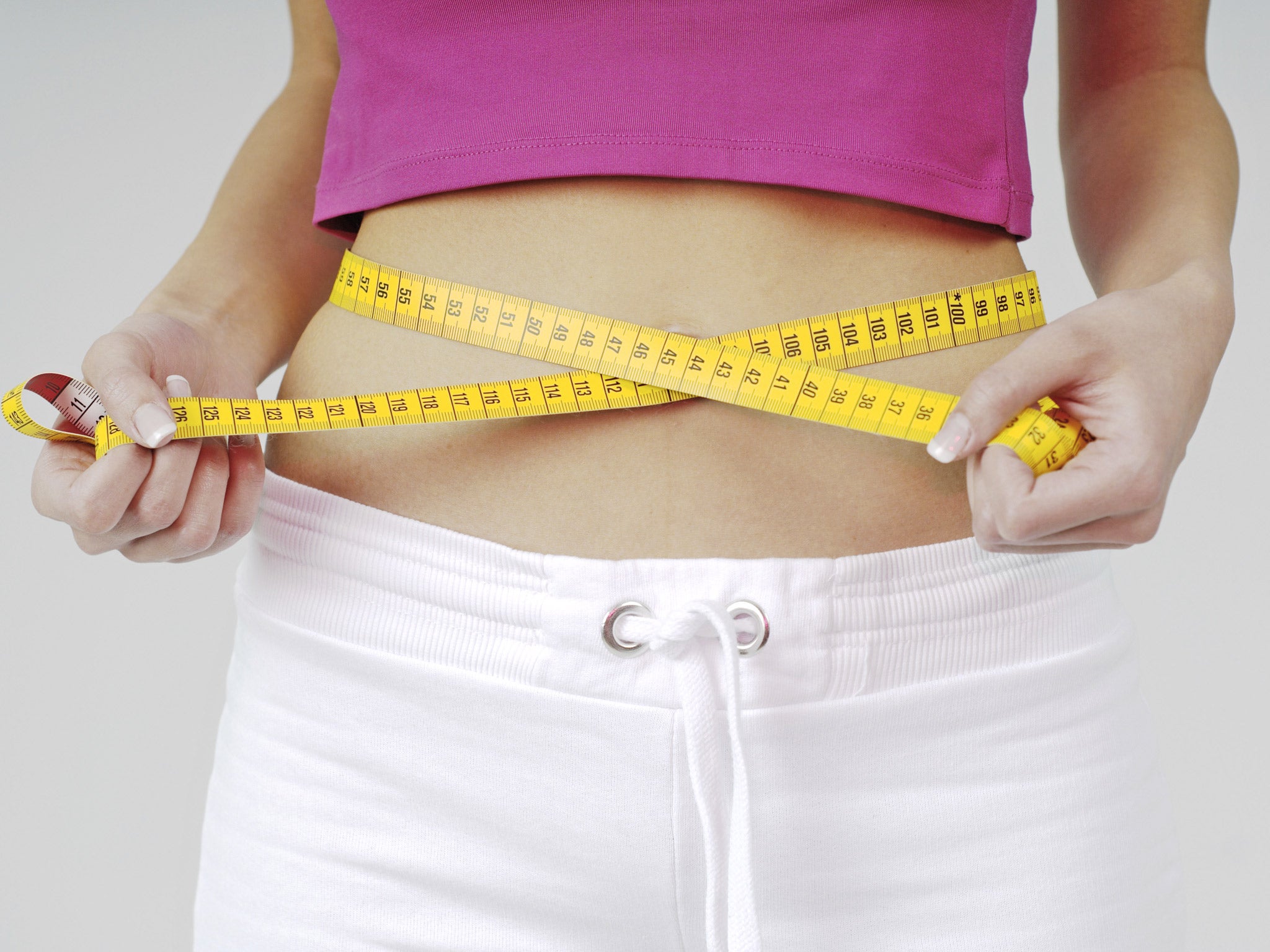The body confidence crisis that is crippling our nation
Sixteen million people in the UK feel depressed because of how they look. One in five have avoided going for a job they wanted because of their body image, and one in four say it has held them back from a relationship. What is going on?


Your support helps us to tell the story
From reproductive rights to climate change to Big Tech, The Independent is on the ground when the story is developing. Whether it's investigating the financials of Elon Musk's pro-Trump PAC or producing our latest documentary, 'The A Word', which shines a light on the American women fighting for reproductive rights, we know how important it is to parse out the facts from the messaging.
At such a critical moment in US history, we need reporters on the ground. Your donation allows us to keep sending journalists to speak to both sides of the story.
The Independent is trusted by Americans across the entire political spectrum. And unlike many other quality news outlets, we choose not to lock Americans out of our reporting and analysis with paywalls. We believe quality journalism should be available to everyone, paid for by those who can afford it.
Your support makes all the difference.Today, the government will launch a campaign called ‘Be Real’. The initiative, which consulted with hundreds of experts - myself included - aims to eradicate the crippling self-loathing being experienced by a hefty chunk of the British population because of their lack of body confidence. In turn, consideration will be given to the definition of body image dissatisfaction as a public health issue, and therefore one worthy of intervention by the Government.
I can already anticipate the backlash. As a body confidence activist whose services are regularly called upon for TV and radio punditry, my Twitter feed is constantly invaded by indignant, blustering huffer-puffers wondering why people like me are devoting our intellectual and creative capacity to something so ‘meaningless’ and ‘superficial’ as body image.
What these individuals fail to realise is that body image concerns and related issues cost the nation, and have a serious impact on a number of different areas. Of course, in an ideal world we’d have loftier considerations than the presence or absence of a bulging bicep or a thigh gap, but in a relentlessly capitalist culture which uses our relationship with our bodies as a money making mechanism, things don’t quite work out in an ideal way.
Indeed, the Be Real campaign’s nationwide survey has uncovered some truly unsettling statistics. Sixteen million people in the UK feel depressed because of how they look. Whilst a fifth are skipping meals to lose weight, eighteen million, seemingly paradoxically, do not exercise owing to body image anxiety. This compounds my long-held view that our obesity crisis is a direct result of a thin-worshipping culture, which prevents so many overweight people from living fulfilling lives, and causes them to seek solace from the shame and guilt they are made to endure in the comfort of food.
One in four Brits say that body image worries have held them back from a fulfilling relationship, whilst one in five have avoided going for their job they wanted. Our relationship with our body often informs how entitled we feel – whether that’s entitlement to happiness, wealth or even love. We make huge, life-changing decisions based on our perception of how attractive we are, and therefore what we ‘deserve’.
As someone who visits three schools a week working with teenagers on mental health and self-esteem related issues, my concern is the devastating impact lack of body confidence is having on British young people as a demographic. In my opinion, there is no more reliable indicator of what is going on within the confines of a person’s mind than how they feel about their body and how inclined they are to look after it. When we are frustrated or dissatisfied, we tend to project those feelings onto the nearest tangible object: our physical selves. Self-harm, eating disorders, exercise addiction, ‘comfort’ eating, binge drinking – these are all ways in which we punish our bodies for something which, more often than not, has its genesis in the mind, and nowhere is this more apparent than amongst our youth. According to research carried out by the Samaritans, in an average British classroom three students are self-harming, whilst the charity B-eat tells us that one in ten will develop an eating disorder before they reach the age of 25.
Body dissatisfaction has a measurable impact on young people’s potential. Last year, Girlguiding and the Dove Self-Esteem Project conducted a study of young women which revealed that 64 per cent of 11 to 16 year-old girls would describe themselves as lacking body confidence. 47 per cent of those surveyed said that the way they felt about their bodies stopped them from partaking in everyday activities undertaken at school, including sports, presenting to the class or drama activities and even raising their hand to ask a question.
The enjoyment of physical activity, ability to present ideas to audiences and most importantly the confidence to question are, any reasonable person would concede, essential life skills. Yet almost half of teenage girls are missing out on the opportunity to develop those skills because of body-related insecurity. If one doesn’t feel able to fully participate in a normal sort of school day, it stands to reason that one will not get the most out of one’s education. This has implications on the qualifications one will receive, the decisions one will make about the subjects one will study and ultimately the jobs one will consider oneself capable of.
The link between physical beauty and entitlement is introduced to most of us at an early age. Aside from Shrek, I struggle to think of one feature length children’s cartoon which does not have a slender, youthful, doe-eyed, Caucasian-ised heroine at its centre and a buff, broad shouldered, square-jawed hero. Plump, less-than-symmetrical characters, or those with disabilities, are relegated to supporting roles. We are given an unequivocal message as children – only the conventionally gorgeous are allowed to be the main character in their own lives. This message is constantly reinforced by the society in which we live as we grow older. So it’s little surprise that the same Girlguiding/Dove survey found that eighty seven per cent of teenage girls believe they are judged more on their looks than they are on their ability.
Multi-billion pound industries depend upon inventing new body insecurities to occupy our time and worry. The very existence of thigh-gap surgery, toe liposuction and earlobe reconstructions (for older women whose earlobes may have lost ‘plumpness and elasticity’) proves this. We cannot ever be allowed to be entirely satisfied with how we look because this diminishes our value as a consumer. Hence beauty paradigms become increasingly extreme throughout history, demanding more and more time, energy and, crucially, cash devoted to attainment and upkeep. Young men must now be buff, tanned, with hair that has been preened and teased into a style which belies the amount of time they have spent achieving it. For young women, it’s no longer simply about being thin, they must now achieve the contrived curves of celebrities like Kim Kardashian and Beyonce (a drastic, exaggerated hourglass not usually possible without the aid of plastic surgery).
So I ask sceptics simply to imagine how many days of work and school are missed, how many promotions not gone for, wages not earned and experiences not had as a direct result of body image worries. Imagine what we might be able to achieve, not just as individuals but as a society, if these body image issues were eradicated. The Be Real Campaign (and the involvement of so many commercial organisations who have recognised that they have a social responsibility) is, therefore, a step towards a better world.
Find out more about the campaign at www.berealcampaign.co.uk
Natasha’s book ‘Fundamentals: A Guide for Parents & Teachers on Mental Health & Self-Esteem’ is out in January 2015, John Blake Publishing.
Join our commenting forum
Join thought-provoking conversations, follow other Independent readers and see their replies
Comments